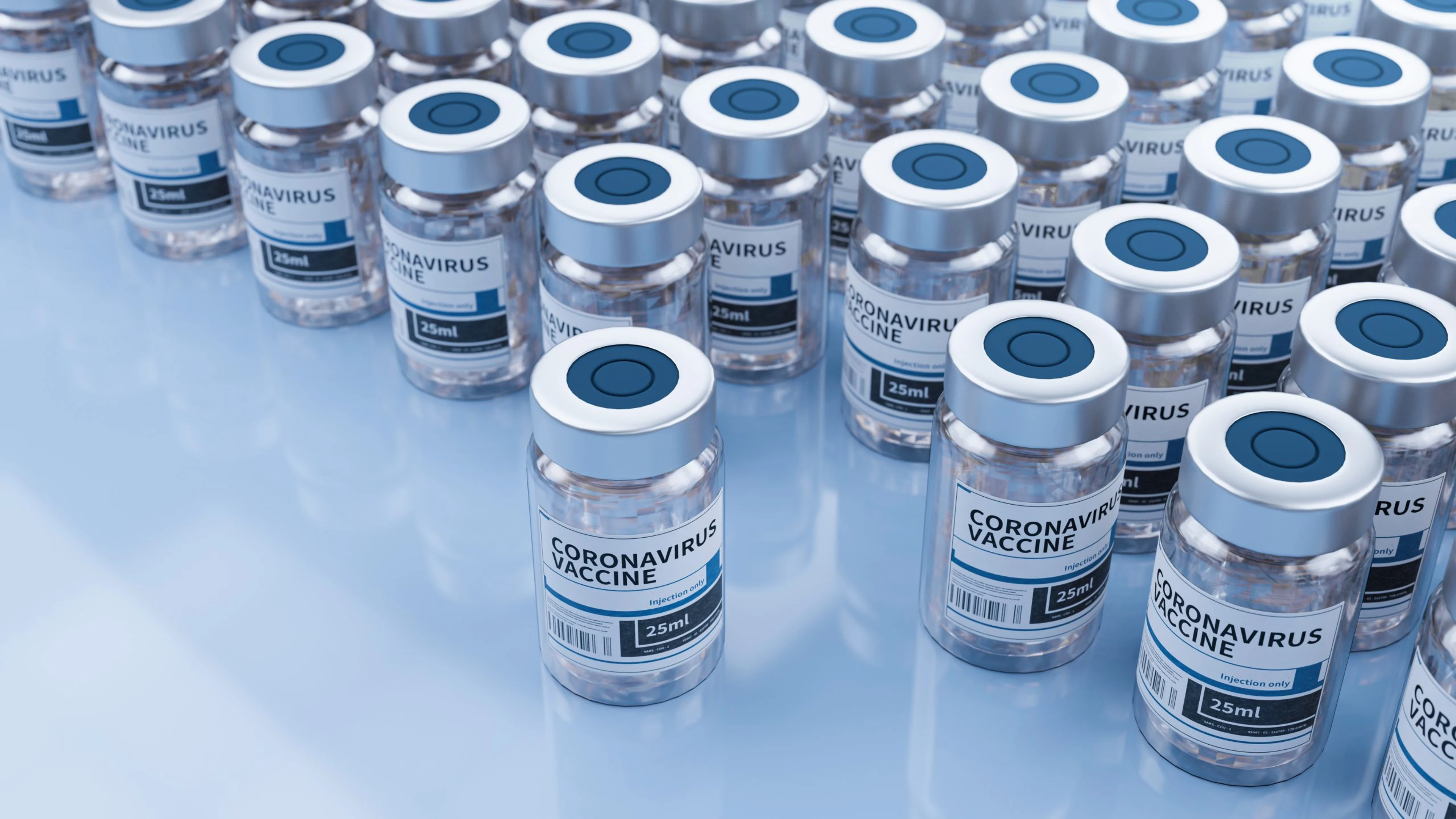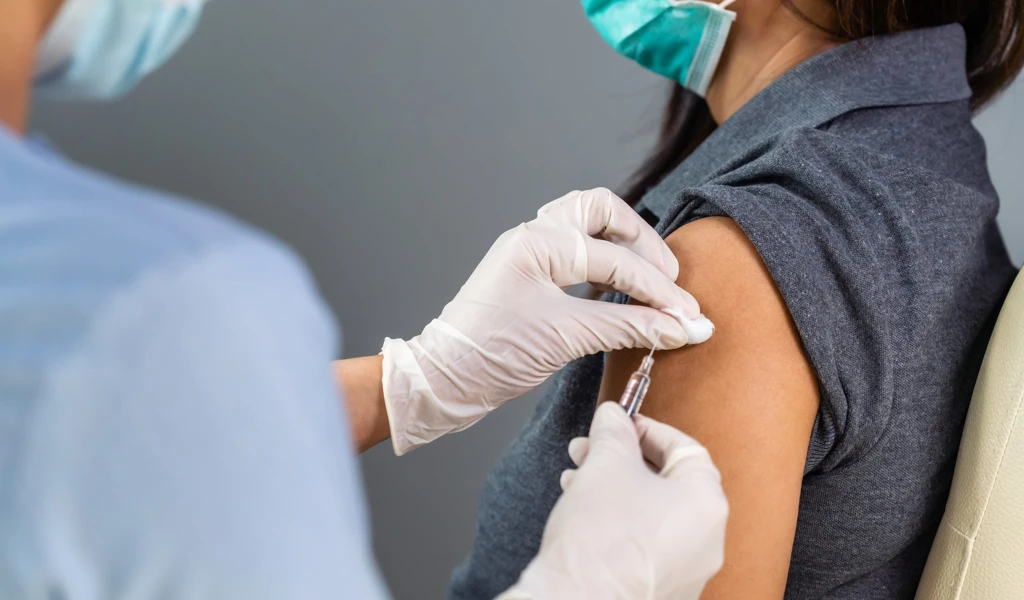New global vaccine trial launched to evaluate fractional COVID-19 booster shots

CEPI will provide up to US $8.7 million (AU $12.3million) to support the trial, led by the Murdoch Children's Research Institute (MCRI), Australia, with support from PATH.
Studies assessing reduced booster shots taking place across Australia, Indonesia, and Mongolia.
With the vast majority of populations in low-income countries still waiting for their first vaccine dose, findings could help tackle global vaccine inequity through providing important data on the potential merits of reduced dose COVID-19 boosters.
22 February 2022, Oslo, Norway and Melbourne, Australia — The Coalition for Epidemic Preparedness Innovations (CEPI) and the Murdoch Children's Research Institute (MCRI) have announced the launch of a global clinical trial investigating the impact of administering reduced COVID-19 booster shots as part of efforts to increase access to COVID-19 vaccines.
Findings from the trial are expected to provide important data on the potential merits of vaccinating people with fractional booster doses of COVID-19 vaccine—as opposed to a full booster dose —which could guide future COVID-19 vaccination strategies. For example, results could suggest that a reduced booster dose would improve, broaden, and prolong the immune response following a primary series of COVID-19 vaccination, while also putting less strain on first dose supplies.
The trial data* could also offer crucial information as to whether fractional doses of COVID-19 vaccines produce fewer side effects in vaccine recipients following administration (compared to a full dose), which could improve the acceptability of booster doses. Additional data on administering heterologous (‘mix-and-match') COVID-19 vaccine schedules will also be generated.
CEPI will provide up to US $8.7 million (AU $12.3million) in funding to the global trial led by MCRI in collaboration with Padjadjaran University and the University of Indonesia in Indonesia, and the Government of Mongolia, and with support from the global non-profit organisation PATH**. Both Indonesia and Mongolia have emerged as regional leaders in immunization and new vaccine evaluation.
Up to 3300 healthy adults will be invited to take part in the trial across Australia, Indonesia, and Mongolia. Depending on the trial location, participants will already have received their primary vaccination course (two doses) of either Pfizer, Oxford/AstraZeneca, Sinovac or Sinopharm COVID-19 vaccines. Participants will then receive either a full or reduced dose of one of three booster shots— Pfizer/BioNTech, Moderna or Oxford/AstraZeneca (in Indonesia). All three booster vaccines being trialled have received Emergency Use Listing (EUL) by the World Health Organization (WHO) and hold commitments to supply doses to COVAX.
Launch of the CEPI-MCRI research programme follows a recent statement made by the WHO*** urging broader global access to COVID-19 vaccines for both primary vaccinations and booster doses to maintain COVID-19 immunity in light of the emergence and impact of new variants like Omicron. While the rollout of booster doses continues to accelerate in many high-income countries, populations in many low-income nations are still waiting for their first COVID-19 vaccine dose, resulting in a serious imbalance in global protection.
Over 10.4 billion doses of safe and effective COVID-19 vaccines have now been delivered worldwide, and the rollout of booster doses has dramatically ramped up in response to the cataclysmic spread of the highly infectious Omicron variant. However, despite this major progress, we continue to see a terrible chasm between rich and poor nations, with the vast majority of populations in low-income countries still waiting for their first dose.
To prevent the further spread of this unforgiving virus and its troublesome variants, we need to achieve vaccine equity, fast. This new partnership will be key to showing us whether reduced booster dose shots could provide adequate protection against current and future variants, while also potentially showing that supplies of first doses to those in urgent need not be compromised.
While COVAX's efforts to vaccinate the world are rapidly progressing–as demonstrated by recently hitting the 1-billion dose delivery milestone–emerging variants like Omicron mean the world remains at constant risk from this tragic threat. And the next variant could be even more powerful than the last.
We must do everything we can to ensure we have adequate supplies of vaccine to protect priority populations worldwide. Launching the fractional COVID-19 booster dose trial allows us to build on the expertise and stellar progress so far made by our partners at the Murdoch Children's Research Institute (MCRI) to advance the fight towards ending this devastating crisis. Vaccinating the world as quickly as possible will enable a faster global recovery and ultimately benefits us all.
All countries are struggling with the issue of how best to maintain COVID-19 immunity in their populations – and this is a major issue in low- and middle-income countries.
Our project, announced today with CEPI, will specifically examine how best to vaccinate communities with follow-up booster shots and the timings around these subsequent booster doses. And while fractional doses could provide the opportunity for great savings for countries, they are also likely to produce less side effects, which will improve the acceptability of booster doses.”
Administering reduced vaccine shots—also known as fractionation—has previously been used to maximise global vaccine supply during outbreaks of Yellow fever and Polio. MCRI also last month published supportive research for this dose-sparing strategy for the experimental rotavirus vaccine, RV3-BB****.
Based on these learnings, CEPI's Call for Proposals—launched to fund clinical trial programmes looking at dose-sparing booster shots for different COVID-19 vaccine candidates—forms part of the coalition's work to expand research on the performance of existing COVID-19 vaccines so that currently available tools can be best used for maximum public health impact. This is the first award to be made as part of the Call. Additional partnerships are expected to be announced in the coming weeks and months.
Efforts to fill in remaining COVID-19 R&D gaps are part of CEPI's $3.5bn plan to strengthen global defenses against COVID-19 and minimise or even eradicate the risk of future epidemics and pandemics.
Urgent funding is needed to support this forward-looking plan. Taking place next month, CEPI's Global Pandemic Preparedness Summit will bring together leading figures from governments, industry, philanthropy, and civil society to unite behind this revolutionary aim in global health security and back the $3.5 billion investment.
—ENDS—
*In line with CEPI's access policy, all data from the clinical trials will be shared through open-access publications and via scientific meetings to ensure all can benefit from the research.
**PATH will provide support to MCRI in terms of grant management, communications, and technical assistance upon request, enabled through a separate Memorandum of Understanding (MoU) signed with CEPI.
***Interim statement made by WHO Technical Advisory Group on COVID-19 Vaccine Composition (TAG-CO-VAC) on 11 January 2022.
****In 2016, the WHO recommended using one-fifth of a regular dose of a Yellow fever vaccine to stem outbreaks occurring in multiple countries in Africa as well as China, amid concern around the limited global supply at the time. Their proposal was based on studies finding that smaller doses of the vaccine, given to adults, could still adequately protect against disease, with a 2019 study analysing real-world data supporting this immunisation strategy.
The dose-sparing approach has also previously been recommended by the WHO to alleviate shortages of an inactivated polio vaccine. In 2016, the WHO's Strategic Advisory Group of Experts (SAGE) on immunization recommended administering the vaccine intradermally (within the skin) rather than subcutaneously (under the skin) as a way of increasing the available doses at least twofold. Multiple studies have assessed immunogenicity of intradermal fractional doses of inactivated polio vaccine compared with the full intramuscular dose and demonstrated encouraging results. The approach has also been implemented in countries like India.
In January 2022, MCRI verified that a half-dose of experimental rotavirus vaccine RV3-BB induces the same immune response in African infants as a full vaccine dose in a Phase II trial. Findings are published in The Lancet Infectious Diseases.
About CEPI
CEPI is an innovative partnership between public, private, philanthropic, and civil organisations, launched at Davos in 2017, to develop vaccines against future epidemics. Prior to COVID-19 CEPI's work focused on developing vaccines against Ebola virus, Lassa virus, Middle East Respiratory Syndrome coronavirus, Nipah virus, Rift Valley Fever virus and Chikungunya virus — it has over 20 vaccine candidates against these pathogens in development. CEPI has also invested in new platform technologies for rapid vaccine development against unknown pathogens (Disease X).
During the current pandemic, CEPI initiated multiple programmes to develop vaccines against SARS-CoV-2 and its variants with a focus on speed, scale and access. These programmes leverage the rapid response platforms developed by CEPI's partners prior to the emergence of COVID-19 as well as new collaborations. The aim is to advance clinical development of a diverse portfolio of safe and effective COVID-19 candidates and to enable fair allocation to these vaccines worldwide through COVAX.
CEPI's 5-year plan lays out a $3.5 billion roadmap to compress vaccine development timelines to 100 days, develop a universal vaccine against COVID-19 and other Betacoronaviruses, and create a "library" of vaccine candidates for use against known and unknown pathogens. The plan is available at https://endpandemics.cepi.net.
Follow our news page for the latest updates. Follow us via @CEPIvaccines, @DrRHatchett, and LinkedIn.
About MCRI
The Murdoch Children's Research Institute (MCRI) is based in the same campus as the Royal Children's Hospital in Melbourne, Australia. It is the largest child health research institute in Australia, and one of the largest in the world. It has an extensive track record in global health research with a particular focus on vaccines and vaccine preventable diseases. Although MCRI is mainly a paediatric research institute, major studies of typhoid vaccine (in Fiji) and HPV vaccine (in Ethiopia) involving adults are underway. MCRI global health research activities are mainly focused on the Asia Pacific region, although several studies are underway in African countries.
MCRI social: Twitter: @mcri_for_kids; LinkedIn; Facebook: MurdochChildrensResearchInstitute
Media contacts
CEPI - Email: [email protected] | Phone: +44 7387 055214
MCRI - Email: [email protected] | Phone: +61 457 365 848


